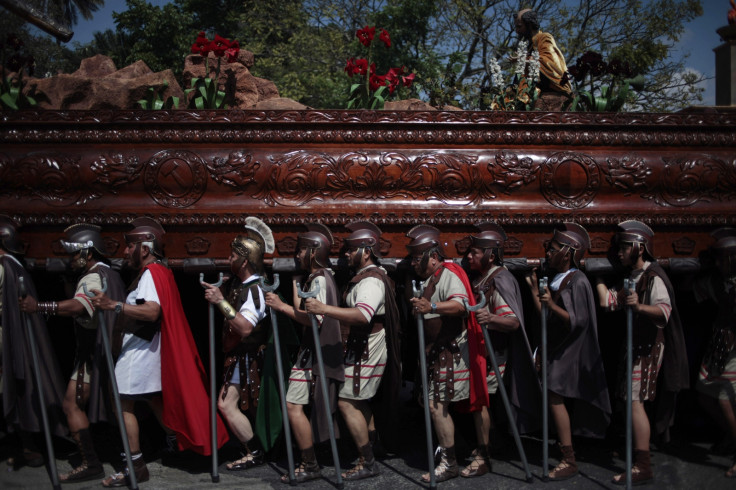When does Lent start and all you need to know about this Christian religious observance

This year, Lent starts on 18 February and ends on 2 April, and is the most important festival in the Christian calendar.
The period of six weeks - 40 days (not including Sundays) - leading up to Easter, marks a time of self-denial and self-examination for those of the Christian faith.
It starts on Ash Wednesday in western Christian Churches. and culminates during Easter Week, with the last period known as Holy Week.
During this time Christians mark the bible story when Jesus went into the desert to fast and pray before beginning his work for God. He was tempted several times by Satan, but was able to resist.
How is Lent observed?
This period of reflection began in the fourth century and is often marked by fasting, the giving up of luxury foods like meat, dairy products, chocolate and alcohol. Many Catholics stop eating meat on Fridays, although Eastern Orthodox Christians follow tougher guidelines and give up meat, eggs and dairy products completely.
Thomas Aquinas who is recognised as a saint by the Catholic Church believed that eating meat and diary products lead to carnal thoughts and that "they afford greater pleasure as food [than fish], and greater nourishment to the human body, so that from their consumption there results a greater surplus available for seminal matter, which when abundant becomes a great incentive to lust."
Why are pancakes eaten on Shrove Tuesday?
The day before Lent starts is on Shrove Tuesday, also known as Pancake Day. This day was traditionally the last time to eat the foods not allowed during Lent.
The word 'shrove' derives from the word 'shrive' which means confess, encouraging people to think about the areas of their lives they would like to change for the better.
On Ash Wednesday, people would give up fat, eggs, milk and sweet things as part of their fast so pancakes were a good way of using up the leftovers in the cupboard that would not be used for the next 40 days and nights.
Festivals take place all over the world at this time, including Mardi Gras in New Orleans. The term Mardi Gras is French for "Fat Tuesday", referring to the practice of the last night of eating richer, fatty foods before the ritual fasting which begins on Ash Wednesday.
Pancake Day has its roots in a Pagan festival. The Slavs believed that the change of seasons was a fight between Jarilo, the god of vegetation, fertility and springtime, against the evil spirits of cold and darkness. The most important part of Shrovetide week was making and eating pancakes, with the yellow, round pancakes a symbol for the sun. By eating pancakes, people believed they ingested the power, light and warmth of the sun.
What is the significance of Ash Wednesday?
On this day, Christian churches hold services during which the faithful are marked on the forehead with a cross of ashes. This is a sign of repentance for sins committed. The ashes come from burning the palm crosses from Palm Sunday of the year before.
© Copyright IBTimes 2025. All rights reserved.




















